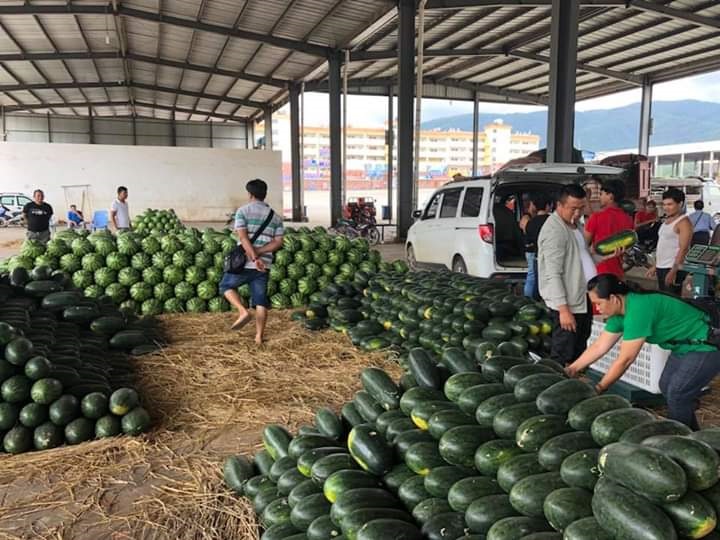January 03, 2023
As Chinese New Year is approaching, watermelon and muskmelon traders involved in the Muse border are doing a roaring trade and the fruits fetch a good price.
The prevailing prices stand at 4 Yuan per kilo for 855 watermelons, and 4.7-4.8 Yuan for Taiwan watermelons and muskmelons depending on quality.
Additionally, the demand watermelon outstripped the supply. The fruits are selling fast.
In the third week of December last year, inferior quality resulted in a price drop of 1.2 Yuan per kilo for 855 watermelons, 2.5 Yuan for Taiwan watermelons and 1.5-2 Yuan for seedless watermelons depending on quality.
In the past years 2017 and 2018, poor quality eroded customers’ trust and lost market share, traders pointed out.
Myanmar’s watermelon and muskmelon are heavily reliant on the Chinese market. The traders grappled with China’s strict virus policy.
Last year, the COVID-19 restrictions hindered Myanmar’s watermelon and muskmelon exports to China. Chinese Customs Regulation increased delay. Long delays of trucks caused harm to watermelon quality and only one in five trucks heading to China remained undamaged with quality watermelons.
The traders are observing delivery time, price and profitability as they are perishable fruit, while they are trying to explore new markets besides China.
On 1 April, Nantaw and Sinphyu border posts were suspended in the wake of COVID-19 impacts. China has closed down the major border crossing of Mang Wein from 30 March 2021 following the COVID-19 cases in Myanmar.
On 8 July 2021, the two-remaining cross-border posts Kyinsankyawt and Panseng were suspended. As a result of this, the border trade between Myanmar and China was completely halted.
Among Sino-Myanmar border posts, Kyinsankyawt border posts resumed operations on 26 November on a trial run.
At present, Myanmar daily delivers rice, broken rice, rubber, various beans and pulses, fishery products, chilli pepper and other food commodities to China through Kyinsankyawt by 100 trucks and building materials, electrical appliances, household goods and industrial raw materials are imported into the country by 40 trucks. — NN/EMM


